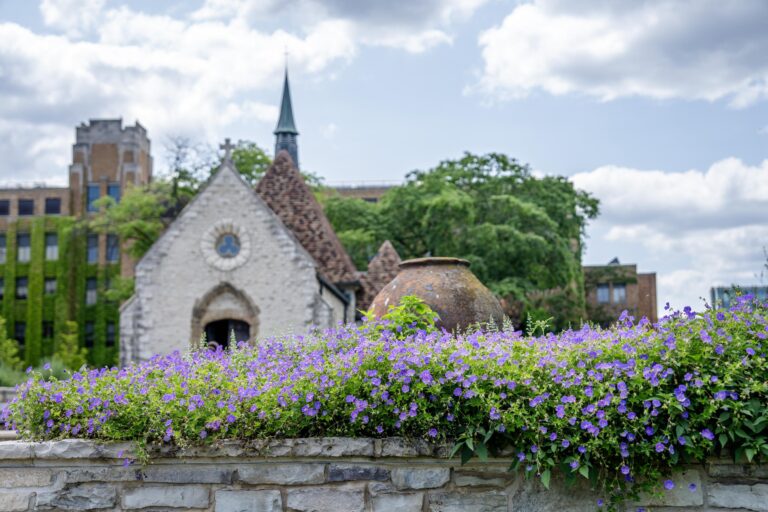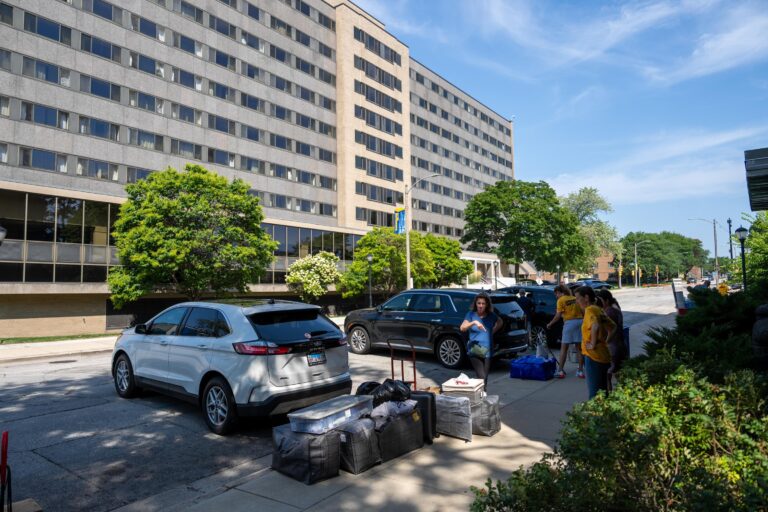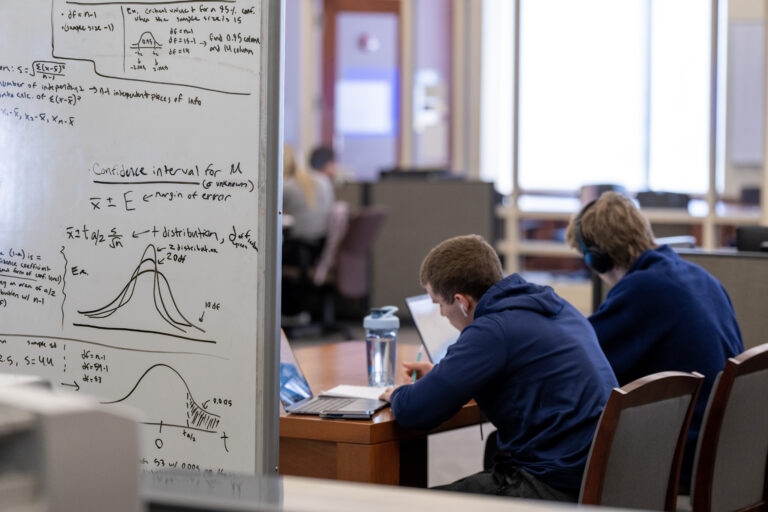The village of El Maranon sits a half hour’s drive away from San Pedro Sula in northern Honduras. Home to 2,500 people, there is not enough clean water for them.
Stomach aches, diarrhea and other maladies from tainted drinking water are common; there’s also no reliable source of medical services. If there were, it’s not likely that the residents of El Maranon could afford it: more than half the population of Honduras exists below the poverty line and that figure is even higher in rural areas, where many families live a subsistence lifestyle. In El Maranon, the population lives on roughly $2 per day.
This is where Dr. Jennie Peters and a small group of former Marquette students go to make a difference.
“In the United States, we have at least somewhat of a safety net that doesn’t exist in many parts of the world,” the clinical assistant professor of nursing says. “I want these former students to see both the good things and the harsh realities of other places. We want to help without hurting.”
Peters and her former students do this by conducting health examinations. On the final week each August, Peters’ group sees throngs of kids and even some adults in pop-up medical clinics run by Compassion International, a Christian humanitarian aid organization that aims to eliminate child poverty.
These checkups, considered routine and widely available in the developed world, are less available in Honduras. They may be the only chance for a mother to talk about her child’s persistent vision issues with someone who can do something about it. In one extreme case, Peters recalls treating a child who had a high fever and symptoms that suggested meningitis, an inflammation of the tissues surrounding the brain and spinal cord.
“We could have called an ambulance, but that would have taken far too long,” Peters says. “We called a taxi for them and gave them enough money for both a taxi to the hospital and treatment, because you have to pay up front for medical care there. They had to screenshot us a copy of the antibiotic order the doctor wrote, and then we paid for that too.”
Stephanie Rawls witnessed all this and more while working alongside Peters. A 2022 graduate of the Direct Entry Master of Science in Nursing program, Rawls had gone on prior mission trips to Ecuador and Costa Rica through her own church. This one was her first as a full-fledged nurse.
“We were making sure to give out anti-parasitic medication for the year, flushing people’s ears, handing out toys and candy to the kids, and hopefully making them smile,” Rawls says.
The annual trip started in 2014, when Peters worked at Concordia University and went to Nicaragua through Great Lakes Church in Kenosha. The trips save charities like Compassion International from having to pay for a doctor, which would cost well over $7,000. A dental group from Kenosha usually comes down to the village in February to conduct a separate set of oral examinations.
You have to go there and recognize it’s not for you, it’s for other people. If you’re doing this right, you will come back very humbled and with a new perspective on your work.
Courtney Schmitz, Marquette DE MSN professor
Before each trip, Peters distributes copies of the book “When Helping Hurts: How to Alleviate Poverty Without Hurting the Poor,” which provides instruction on how to serve effectively. Peters says it’s common for people to go to developing countries with a “savior complex,” acting as though they know what the local population needs better than the people do. This, she adds, can sabotage mutual trust, a vital component in any successful mission.
“We’re meeting them where they’re at,” Peters says. “You have to develop those relationships with them, and it takes a few years to do that.”
“You have to go there and recognize it’s not for you, it’s for other people,” says Courtney Schmitz, a professor in the Direct Entry MSN program. “If you’re doing this right, you will come back very humbled and with a new perspective on your work.”
Despite not having access to the resources that patients in the United States enjoy, the people of El Maranon approach life with a positive attitude. Peters and Schmitz noted how satisfied the people seemed to be to share their families’ company and how pleasant they were toward the healthcare team.
“We are all the same in our love of family and friends,” Peters says. “We define poverty as a lack of material items, and this trip shows that we need to look at the perspective beyond material items.”
For a community that doesn’t see outsiders often, they made the volunteers feel at home.
“They were all incredibly welcoming; there were so many hugs and thank yous and that’s not why we do it, but it’s such a rewarding feeling to know that you are helping a community in need,” Schmitz says. “I didn’t meet anyone who was apprehensive about us.”
When the mission workers return home, those positive feelings give way to an odd mix of hope and frustration: the former for everything they were able to accomplish and the latter for the societal failings that they are not able to fix. They have managed to accomplish a lot, though, including aiding in bringing water purification systems into the country, teaching oral rehydration methods for alleviating diarrhea and partnering with a construction team to help build a vocational center.
Even so, seeing the extent of the problems that remain can leave a bitter taste.
“These families come to us asking for help for some things that we can’t really do, and it’s gut-wrenching to know we can’t take care of every last person,” Rawls says.
However, because of Peters and her team volunteering with Compassion International, more than 450 people received physicals that would not have been available otherwise. Peters says eventually she would like to take current Marquette nursing students, furthering the college’s commitment to preparing nurse leaders who promote health, healing and social justice for all people through clinical practice and the development of nursing knowledge.



